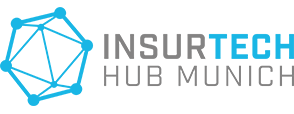Meet Thryve, the startup behind the Robert Koch Institut’s corona app.
Robert Koch Institut (RKI), a German federal government research institute, is one of the pivotal players in the corona crisis management. As the development of a vaccine or an effective medication will take time and the lockdown can’t be sustained over a longer period of time, tracing apps are being introduced in many countries around the world to slow down the spreading of the virus.
The RKI’s own “Corona-Datenspende” app, launched early in april, invites users to provide data from their activity wristbands and smart watches since the beginning of april. It’s a Berlin-based health startup, Thryve, participant of InsurTech Hub Munich’s 2020 Innovation Programme, that is responsible for the design and tech development behind the app.

A clinical thermometer for crisis-ridden times
“The Corona-Datenspende app serves as a kind of medical thermometer in these crisis-ridden times,” explains Friedrich Lämmel, co-founder of Thryve. More than 300,000 people in Germany have already downloaded the app (figures mid-april). “The launch of the app was far more successful than we could ever have imagined. Thanks to our agile internal structures we were flexible enough to react quickly to the incoming peak load – though we are only a team of twelve,” says Lämmel and adds: “We hope to be able to grow the staff with this project.”
Thryve had already developed the basic concept for the “Corona -Datenspende” app earlier this year – in the form of an algorithm for detecting flu-like symptoms. In February, even before Corona began to gain momentum in Germany, Lämmel and his team examined how their technology could help fight the pandemic. “We realized that with some adjustments to our algorithm, we could also detect COVID-19 symptoms.” Thryve proactively approached the RKI and suggested developing an app.
From concept to deployment in four weeks
Thryve is a commercial spin-off of the research organisation Fraunhofer Institute for Computer Graphics Research (IGD), which was founded in 2017 by Lämmel, his co-founder Paul Burggraf and John Trimpop. The startup therefore already was experienced with the sensitivities of the research world and is familiar with relevant regulatory issues such as data protection. Factors that were ultimately decisive for Thryve to be awarded the contract.

Within only four weeks the “Corona Data Donation App” was developed in close cooperation with the RKI. Thryve provided the technical basis for the analysis and evaluation of the data, the design and user interface was created together with the RKI. “We confer with the RKI almost daily, mainly discussing technical improvements. In the coming weeks, we will focus on the evaluation of the data and the further development of the epidemiological models,” explains Lämmel.
The broad and largely positive media coverage – the New York Times and the Washington Post reported – is a first for the young company. Although GDPR-compliant, some data protectionists still were voicing criticism of the app. Lämmel assures: “The transmission of all personal data such as gender, age, height and weight is voluntary and pseudonymized. Only the postal code of the user must be released when using the app the first time. The app corresponds to privacy by design – this means: the protection of personal data in terms of the GDPR is achieved by taking technical and organisational measures at an early stage of development”. Users have the possibility to manage and delete their data at any time. RKI director Lothar Wieler has also commented on the criticism, adding that the app was developed with the involvement of the Federal Data Protection Commissioner.
What a year! Only a few weeks ago, Lämmel and his team could hardly have imagined that they would work for the renowned RKI and that their solution would play a key role in fighting a pandemic. “For everyone on the team, this project is a tremendous motivational boost,” Lämmel emphasizes. “As a startup founder, one likes to talk about wanting to make a ‘meaningful contribution to society’. With this project we are doing exactly that”.
Text: Daniel Lange

